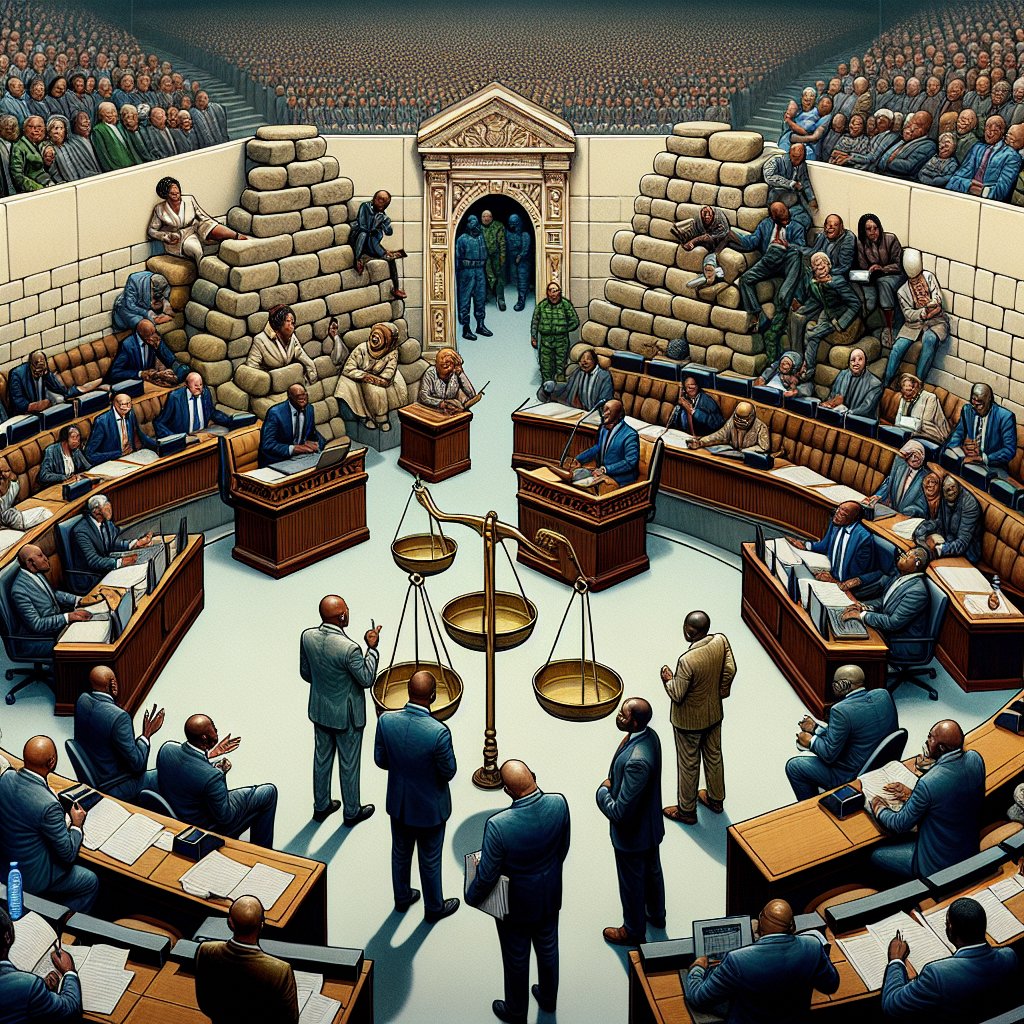Content created by AI
Governance at the Crossroads: South Africa's Parliament and the Question of Majority Rule
In the hallowed chambers of South Africa’s Parliament, 2023 was yet another year that drew sharp criticism and set the stage for intense debate on the nature and function of South Africa's constitutional democracy. Inside the august House, every step and misstep were carefully monitored and analyzed by vigilant observers, raising questions about the integrity of the democratic process in the country.
It’s a year that saw the African National Congress (ANC) members of Parliament (MPs) accused of submissive conduct to the executive authority, which, according to Jan Gerber, a parliamentary reporter for News24, resulted in the legislature's diminished capacity to hold the executive branch accountable.
The fulcrum of the year’s parliamentary controversy turned on a succinct statement from no less a figure than the new Deputy President, Paul Mashatile. Fresh in his newfound role, he encapsulated the prevailing attitude when he posited, "I think that is how democracy works. The majority must have its way." This remark, however, sparked more than a scintilla of outrage, beckoning an evaluation of what democracy means in the South African context—and whether the majority's "way" equates to the greater "good" of democratic governance.
South Africa's constitutional democracy is designed to balance the will of the majority against the protection of minority rights and the rule of law. To consolidate democracy, parliamentary oversight is crucial. When majority rule ceases to pursue accountability and becomes a shield for impunity, a critical examination is not just warranted; it becomes imperative.
Throughout the year, concerns have been voiced regarding the state of checks and balances in South Africa. Does the ANC’s parliamentary majority deploy its numerical strength to carve an impenetrable fortress around the executive, or does it engage in constructive dialogue upholding the tenets of the constitution?
Moreover, the lack of opposition within the ANC itself raises questions about the internal democratic processes of the party that boasts a majority seat in the parliament. Have democratic principles been upheld within party lines, or has a culture of acquiescence taken over the ANC's political demeanor?
The implications of Parliament’s path can be far-reaching for South Africa's socio-political landscape. It can influence policy-making, the execution of national programs, and most importantly, the trust of the citizens in their government.
While the year witnessed the ANC majority casting its influence over parliamentary proceedings, it also provided a litmus test for the resolve and resilience of the country’s democratic institutions against the encroachment of hegemonic practices. These occurrences summon the citizenry and civil society to a heightened state of scrutiny and advocacy for transparency, accountability, and a return to the principles enshrined in the nation's constitution.
As the year closes, the role of Parliament, the conduct of its majority party, and the principles of constitutional democracy in South Africa remain under a searching spotlight. This historical moment allows South Africans a chance to reflect, critique, and engage with their political reality, informing the broader conversation on governance and shaping the narrative for future generations.










